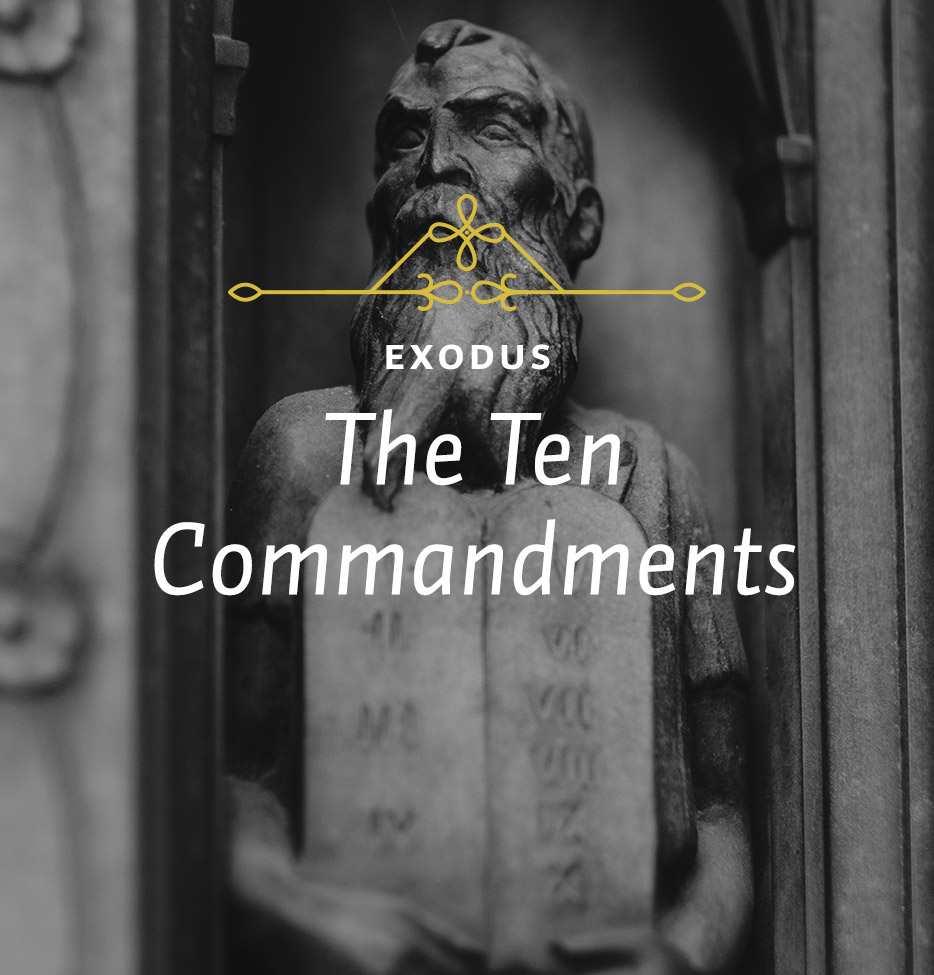The fourth commandment tells us, “Remember the Sabbath day by keeping it holy.” Now up to this point, there is general agreement as to what the first three commandments require, even though we don’t keep them. When we come to this fourth commandment, there is no longer full agreement on what that’s talking about. The seventh day here is prescribed as a day of Sabbath rest. Yet, as we well know, the majority of Christians don’t observe it. We worship on Sunday instead, which is the first day of the week. In addition, we worship differently from what is prescribed in other places in the law.
There are three different views of the Sabbath. Some people, such as Seventh-day Adventists, believe we are to do exactly what it says, that is, we are to worship on Saturday, the Sabbath day.
The second view, held by the Puritans and stated in the Westminster Confession of Faith, maintains that the Sabbath has a counterpart in the New Testament today in Sunday Thus, Sunday is the equivalent of the Old Testament Sabbath and therefore we should observe the first day of the week as the Lord’s day—and as the Jews observe Saturday, that is, with no work.
The third view, which I think is correct, is that Sunday is a new day given to us in a new dispensation under the new covenant, to be observed in a different way. This third view is the view of John Calvin. If you turn to the New Testament to see how the Lord’s Day was observed, you find that it was not observed with the Old Testament regulations. It was a day of joyous activity—of worship, service, and witness to others. However you regard the Sabbath, do you observe it in a serious way? Coming to church is a good starting point, but do you actually use the Sabbath in a way that will glorify God? God obviously takes it seriously, and we should as well.
Now we turn to the second table of the Law, and it has to do with how we respect and treat other people. When Jesus answered what the first and great commandment was, he then said what the second commandment was, even though the Pharisees had not asked about it. “You shall love your neighbor as yourself.” Jesus said that these two commandments sum up all the Law and the Prophets. The first four commandments show us how to love God with all our hearts, souls and minds. The second table, giving the last six commandments, indicate how we are to love our neighbor as ourselves.
The fifth commandment begins with the family because it has to do with honoring our father and our mother. The family is the smallest, but also the most important, unit of society. Where the family stands, the culture stands, and where the family breaks down, the culture breaks down. This is the second of the two positively expressed commands. The first concerned the Sabbath, and the second is this present commandment. And, as Paul reminds us in Ephesians 6:2, it’s also the first commandment that comes with a promise. In Exodus 20:12, God says, “Honor your father and your mother, so that you may live long in the land the LORD your God is giving you.” God takes this command seriously enough to affix a promise to it.
The sixth commandment says, “You shall not murder.” Because of an unfortunate translation of this verse, it has been misunderstood by many people to mean that it is wrong to kill in any form. Many Bibles translate the Hebrew verb as “kill.” But the verb doesn’t mean “kill,” it means “murder.” Sometimes it’s translated “assassinate” or “slay,” and that’s why the New International Version corrected it by translating the commandment, “You shall not murder.” It’s obvious, however, that the Israelites didn’t think of themselves as being prohibited from killing, because they went to war at the command of God and killed their enemies. They had capital punishment for a large variety of offenses. They killed animals in sacrifices. It didn’t have to do with killing, it had to do with murder.
Perhaps you might be saying to yourself, “Well, this is one commandment I have never broken because I have never murdered anyone.” We have to remember that Jesus taught that murder also involves the attitude of the heart. In the Sermon on the Mount He taught that calling your brother, “Raca” (a term of contempt), or if you call your brother a fool (thus, slandering his name and his character), is murder in the eyes of God.
When we understand this commandment, we see that it is probing into the way we actually act and think about other people. We murder others when we gossip, when we bear grudges, when we slander, when we lose our temper, when we neglect those we ought to honor, when we show spite, and when we exhibit jealousy. Each of those breaks the law of God.
The seventh commandment teaches that you shall not commit adultery. Again, in the Sermon on the Mount Jesus teaches that adultery is more than the outward act. It also includes looking at a woman lustfully because such a person has already committed adultery with her in his heart. There’s probably no point at which the Ten Commandments come into more direct opposition to the values of our culture than this. Many people steal. A lot of people dishonor their father and their mother. A great many people lie. All of that is quite common, although even people who do these things sometimes agree that they are wrong. But when it comes to the matter of sexual expression and the freedom to do what you what with whom, our culture rejects the biblical truth that adultery is wrong. This has resulted in catastrophic harm and ruin for individuals, families, and society.






